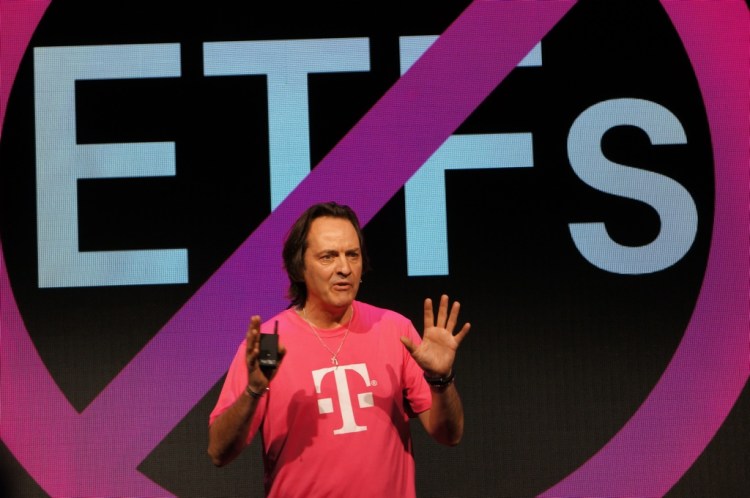The Uncarrier is in hot water with the Federal Trade Commission.
The FTC alleges that T-Mobile knowingly allowed fraudulent charges on customer bills from so-called “premium” texting services, according to an announcement made this afternoon. T-Mobile ended up making hundreds of millions from those charges, which reach back into 2009, the agency claims.
Specifically, the FTC is targeting charges made by companies offering services like horoscopes and dating tips, which often lead consumers into unwittingly signing up for $10 monthly subscriptions. Many of these companies trick consumers into accepting their services, and in some cases also buy phone numbers in bulk.
The agency alleges that T-Mobile, which gets a percentage of the subscription fee, was well aware of the bogus charges being made by these companies; has refused to fully refund charges once consumers complain; and that it even went as far as to hide some of these charges in customers’ bills. Some of the fraudulent services saw refund rates by around 40 percent from T-Mobile customers, which is a clear sign that they were suspect, the FTC claims.
Ironically, the news comes after T-Mobile has launched a slew of consumer-friendly “uncarrier” announcements, including new contract-free subscriptions, free data roaming and texting internationally, and paying for early termination fees so that people can easily leave their existing carriers. All of that has led to strong subscriber growth, and it has pushed other carriers to adopt similar services.
In a call with press today, the FTC’s head of the bureau of consumer protection, Jessica Rich, noted that “we engaged with settlement negotiations with T-Mobile, but we were not able to reach a settlement.” Now, the FTC is taking T-Mobile to court with the goal of giving the carrier’s customers full refunds and getting back the money it earned from these services.
“It’s wrong for a company like T-Mobile to profit from scams against its customers when there were clear warning signs the charges it was imposing were fraudulent,” FTC Chairwoman Edith Ramirez said in statement today. “The FTC’s goal is to ensure that T-Mobile repays all its customers for these crammed charges.”
This is the fifth major action taken by the FTC around “mobile cramming,” its term for this method of stuffing charges into cellphone bills. Most recently, the FTC forced a cramming outfit to give up more than $10 million in assets.


